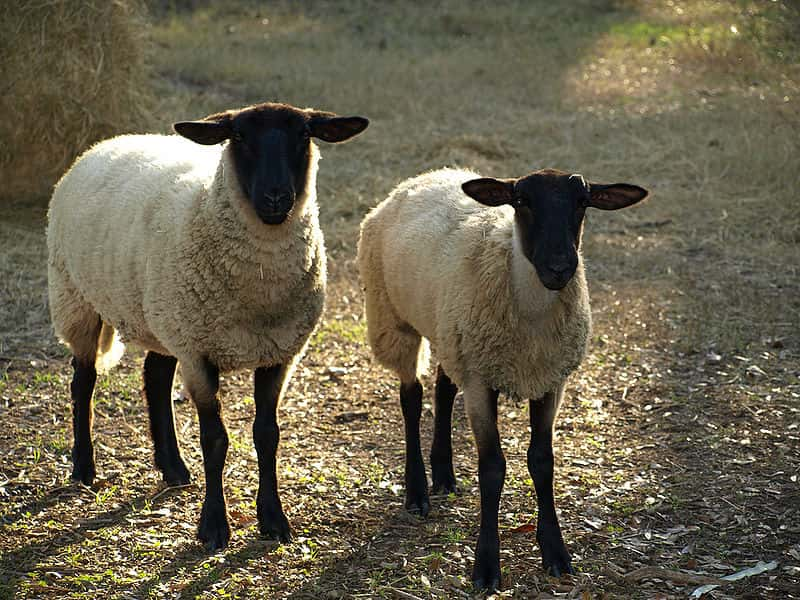Northern Ag Network Note: The following “Letter to the Editor” was submitted on Friday, June 6, 2014 from Montana Wool Growers Association President Greg Wichman. To read more on the discussed audit, please read “Montana Department of Livestock Told to Stop Breaking State Law.”
As President of the Montana Wool Growers Association I write today to express our association’s concerns regarding the Montana Board of Livestock.
Montana’s sheep industry has been paying close attention for the last four years to the Board’s troubling budget management. Livestock producers need to be aware of the serious budget woes at the Department of Livestock, and to demand some accountability for the dollars paid over to the Board by producers, namely be requesting that the Board conduct more oversight over the budgeting process and allocations and by ensuring that future board members have budgeting experience.
At the Board’s May 2014 meeting, the Board revealed that the balance in the state special revenue fund, which is essentially the BOL’s checking account, has dropped from $3,865,460 in FY 2009 to a projected amount of $802,848 in FY 2015. The fund balance for the brands division in FY 14 is projected to be negative $181,492. The diagnostic lab is projected to be in the red again, likely necessitating a transfer of another $200,000 in per capita dollars in this fiscal year to cover lab expenses. Since FY 2008, the diagnostic lab has gone from receiving $0 per capita monies to receiving nearly $700,000. This shift of per capita dollars has, of course, negatively impacted the amount of per capita monies dedicated to predator control. In addition, the funding shortfalls in the lab will carry over into FY 2015, which will likely necessitate additional per capita monies be shifted over. In addition, the Board conceded that it had used nearly a million dollars of per capita to fund DSA expenses, when it had the authority to use general fund dollars instead.
The reality of the Department of Livestock’s budget situation is this. As it stands now, the Board will be seeking a supplemental appropriation of at least $700,000 from the 2015 Montana legislature in order to cover shortfalls in expenses as was stated by BOL personnel to the Legislative Finance Committee on June 6th. It has been my experience that any time a state agency seeks a supplemental appropriation from the Legislature, it means that the agency has not budgeted correctly and needs a bailout, and so it goes with the Board of Livestock.
In addition to the serious budgeting issues discussed above, the Legislature’s audit division recently completed an audit on the Board’s budget management practices. The Auditor’s findings are troubling. The Auditor’s determined that the BOL staff, namely their Executive Officer Christian McKay, failed in several instances to follow Montana law when budgeting, and in one instance, violated the Montana Constitution. More specifically, the Legislative Audit division determined that the Board made unconstitutional payments from the public treasury of $197,000 when the Board made these disbursements without appropriation authority. As to per capita fee setting, the audit found that the Board miscalculated the 2012 per capita fee revenue calculation, the result of which was, in essence, to ‘overtax’ the industry by $158,000. And, the auditors determined that in fiscal years 2012 and 2013, the Board failed to comply with state law by using deferred revenue to fund current year operations, namely in the brands division. This is the second time in ten years that the Board has been found to have violated this deferred revenue requirement.
All-in-all, the content of the audit is pretty remarkable, namely in the finding that the Board, through its Executive Officer, failed to comply with the requirements of the State Constitution when budgeting. Further, the audit is remarkably weak in that the auditors only call for the BOL to comply with Montana law and the Constitution going forward. The audit does not call for disciplining those responsible at the BOL for breaking the law, and the audit contains no real suggestions for imposing greater oversight by the Board over BOL budgeting personnel — a management step that clearly needs to be undertaken.
As far back as 2010, the sheep industry alerted the Board to its concerns about the management and allocation of per capita dollars. However, instead of acknowledging our concerns and tackling the budget woes head on, the Board’s reaction has been to attack the messenger. Only recently has the Board begun to recognize and address the concerns expressed by MWGA and our sister agriculture organizations about their budget management and practices.
As a matter of law, the BOL is the trustee of the monies paid by livestock producers. The Board has a fiduciary responsibility to manage our dollars wisely and prudently. When the Board and its staff fail to do so, they need to be held accountable, and they need to take responsibility for their actions. The status quo is not working. Every livestock producer needs to be aware of these issues and demand changes.
If a rancher were to run their livestock operation in the same manner the BOL has been operating for the last 5 years, not only would that rancher quickly be out of business, but they could be held liable to other persons involved in the business for breaching their duty. As it always has, the sheep industry stands ready to help the BOL address its fiscal problems and to help the Board with its legislative supplemental appropriation request. However, the Association will condition that assistance on receiving something in return – namely an assurance that present management practices will be revised and that those managing the budget will follow state law requirements.
Greg Wichman, Hilger
Montana Wool Growers Association President


